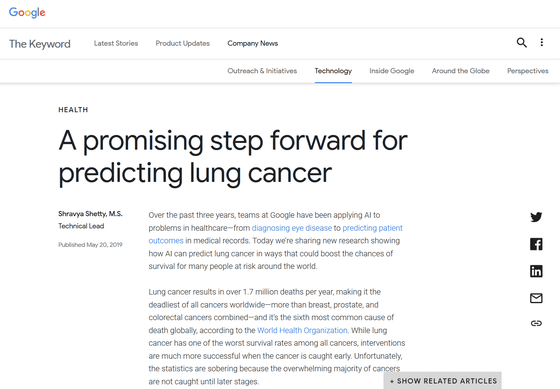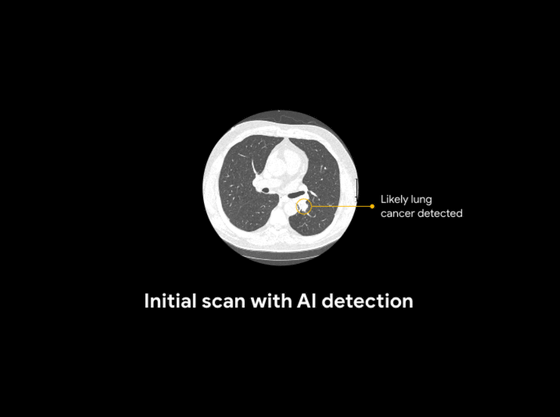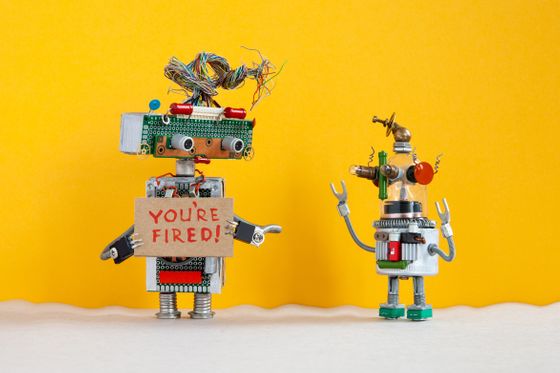Research shows that Google's lung cancer detection AI is already superior to human doctors

By
Lung cancer is the most deadly cancer among cancer . Google has developed an AI to detect such lung cancer, and if this AI was used to carry out a cancer screening using low-dose lung cancer CT (LDCT) , the cancer could be performed with higher accuracy than human radiologists. It is clear that it can be detected.
End-to-end lung cancer screening with three-dimensional deep learning on low-dose chest computed tomography | Nature Medicine
https://www.nature.com/articles/s41591-019-0447-x
A promising step forward for predicting lung cancer
https://www.blog.google/technology/health/lung-cancer-prediction/

Google's lung cancer detection AI outperforms 6 human radiologists | VentureBeat
https://venturebeat.com/2019/05/20/googles-lung-cancer-detection-ai-outperforms-6-human-radiologists/
It Got an A.-The New York Times
https://www.nytimes.com/2019/05/20/health/cancer-artificial-intelligence-ct-scans.html
Google research team, the United States National Institutes of Health to take advantage of 45,856 sheets and Northwestern University has provided the anonymity of the chest CT scan data, to learn from only the results obtained with the data entered for the AI end-to- We did end deep learning . After that, AI students who finished learning and six human specialists conducted lung cancer screening using low-dose lung cancer CT data.
When performing cancer screening from a single CT scan, AI reduces false positives that “it looks like cancer but is not actually cancer” by 11% compared to human specialists. The cancer detection rate was 5% higher. If you click the image below, you can see an image (GIF) that AI can detect cancer with high accuracy, even if you do not have a history of cancer.

On the other hand, there is almost no difference between human specialists and AI cancer detection rates when it is possible to refer not only from a single CT scan but also from past CT scans. Also, in predicting the future, AI gave better results than humans. In an experiment that predicts the risk of lung cancer two years after the test, the AI test showed a 9.5% higher detection rate than the results of human radiologists.
However, there are also potential risks in medical diagnosis using AI. Even if a radiologist misreads a CT scan, the misdiagnosis only affects one patient. On the other hand, if AI did a 'misdiagnosis', it means that an error occurred in learning, and that 'misdiagnosis' may affect many patients.

By Besjunior
'Deep learning can increase specificity without sacrificing detection rates,' said Shravya Shetty, who led the study. What role can AI play in the cost-effectiveness of cancer screening? I hope that various surveys and research will be conducted. '
Related Posts:
in Science, Posted by darkhorse_log







